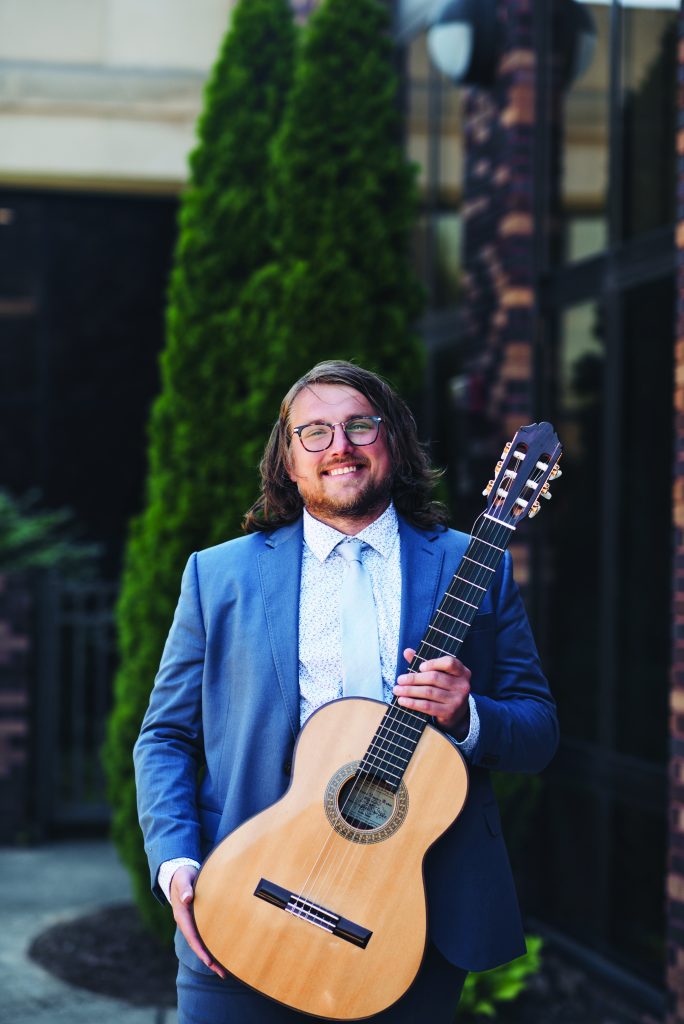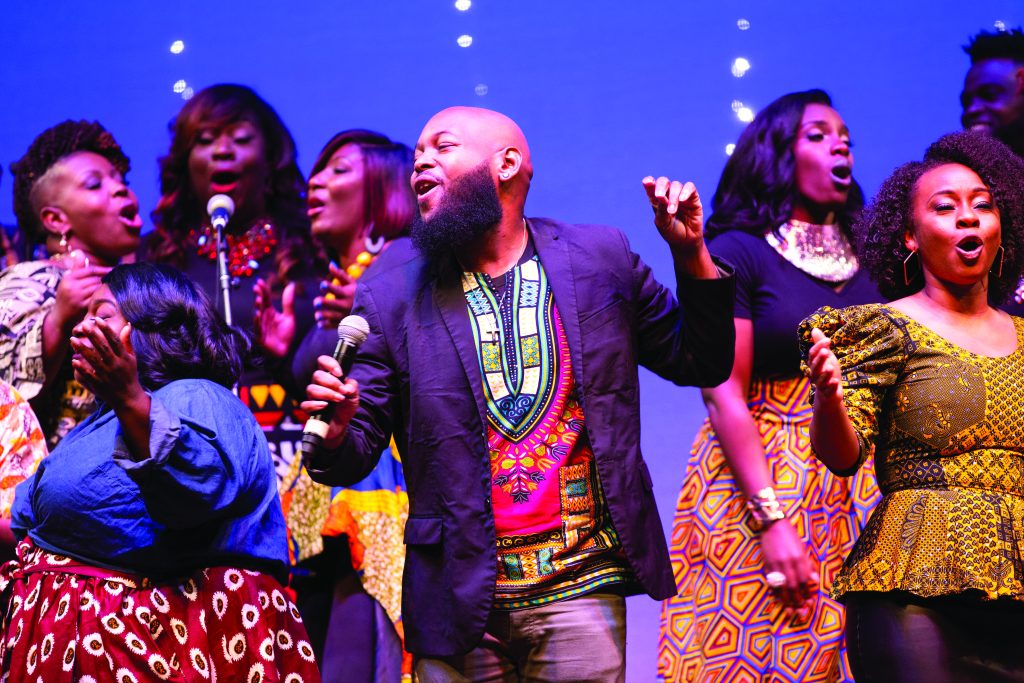February Performances Transcend Cultural Boundaries
Ask Kyle Canjar what he enjoys most about playing music and he will tell you it’s the way it preserves history and cultures, even—and maybe especially—those you can’t claim as your own.
 Canjar, a classical guitarist and faculty member at the Flint School of Performing Arts, will indulge in this privilege on February 16 as part of the FSPA Faculty Concert Series. His concert, titled “Music of the Mardi Gras,” will celebrate the traditional music of the American Creole tradition, specifically from the historically Black perspective.
Canjar, a classical guitarist and faculty member at the Flint School of Performing Arts, will indulge in this privilege on February 16 as part of the FSPA Faculty Concert Series. His concert, titled “Music of the Mardi Gras,” will celebrate the traditional music of the American Creole tradition, specifically from the historically Black perspective.
“New Orleans served as a port of entry for hundreds of thousands of slaves from the African diaspora, each bringing with them a rich tapestry of languages and cultural traditions. Despite enduring the harsh realities of racism and violence, these cultures found a way to express themselves, blending the old and the new,” says Canjar. His concert is meant be a tribute to this truth, performed “in homage to the profound history that has shaped American music,” he says.
This certainly won’t be the first time Canjar has defied his own heritage to embrace the musical traditions of other cultures. A native of Flint, Canjar first discovered his passion for guitar while studying at Mott Community College. He went on to earn undergraduate and graduate degrees in performance at Wayne State University, and studied both classical guitar and Brazilian popular music in Minas Gerais, Brazil. His band, Canja de Boa—which is Portuguese for “good soup,” a reference to the many musical flavors the band represents—is a Brazilian Jazz ensemble that frequently performs as part of the FIM Music Around Town series and broadly throughout Southeast Michigan. “I just fell in love with the music,” Canjar says about choosing to specialize in the genre after studying abroad.
He’s not alone in his choice to traverse cultural boundaries through music, of course. Trey McLaughlin, who will make an appearance at Whiting Auditorium on February 8 with his “Zamar Experience,” also works to provide cross-cultural encounters though his genre of choice.
Like Canjar’s Mardi Gras tribute, McLaughlin, who garnered fame through a series of viral videos with his gospel group, The Sounds of Zamar, has embraced a rich musical tradition deeply rooted in the history of slavery in North America. Unlike Canjar, however, he can lay claim to these roots, a mixture of African Spiritual and sacred English hymns that have metamorphosized and splintered over time to influence modern American music from R&B, to pop, to hip hop and jazz.
McLaughlin also regularly performs abroad, sharing a fervor for vocal performance as he unlocks new doors to cultural enrichment. He holds a degree in Vocal Pedagogy from Columbus State University and has taken on the role of teacher throughout Europe and Central America, conducting vocal workshops in France, Poland, Spain, Denmark and Mexico. His experiences abroad, paired with an impressive list of credentials and a performance history that extends into his youth, helped cultivate a passion for fusing musical genres—much like the “good soup” of Canjar’s Brazilian band—to create an eclectic sound that is deeply rooted in cultural tradition, yet all his own.
In fact, it wasn’t the gospel music for which he rose to fame that caught the attention of FIM Director of Programming, Ella McAndrew. “I was sent a link to a YouTube video of an arrangement that Trey had done for ‘Dear Theodosia’ [from Hamilton] and thought it was beautiful. It gave me goosebumps,” McAndrew said. “The talent and passion for every note they sing is clear.”

McLaughlin conducts, composes, and arranges for The Sounds of Zamar, a name which itself suggests that he prefers to be guided—not restricted—by tradition. The loose translation from Hebrew, “to praise by making music,” tells audiences all they need to know. This is what praise sounds like, it says. It must be experienced, because, like McLaughlin’s musical inclinations themselves, it is multifaceted and cannot be described within the limitations of language. This form of praise is the sound of gospel and pop and musical theatre; it is both the history of a cultural tradition and the invention of something completely new.